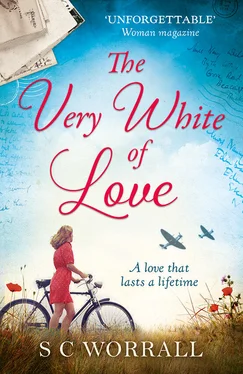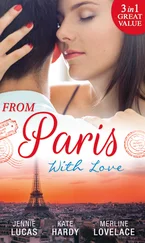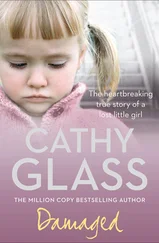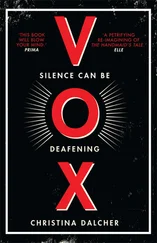A huge cheer goes up. People spring to their feet. Martin and Hugh remain seated, clapping enthusiastically.
The President gets to his feet. ‘And now, my honourable friends, the time has come to vote on our motion. Ayes to the right, please. Nos to the left.’
There is a cacophony of benches scraping, coughs and stamping feet, as the audience gets to its feet and files out of the debating chamber. As Martin reaches the brass rail dividing the votes, he hesitates, then steps to the right.
Martin and Hugh follow the crowds to the Eagle and Child pub, known to generations of Oxford students as the Fowl and Foetus. C. S. Lewis and Tolkien can normally be found in the back room talking about hobbits and magic wardrobes with other members of ‘The Inklings’. Not tonight. It’s bedlam. The heat is intense, the air blue with smoke. Everyone is arguing about the debate.
‘They should bloody shoot that Stephen King chap,’ a plummy-voiced young Trinity student sneers. ‘Or send him off to the Soviet Union!’
‘Liddell Hart’s not much better!’ his companion snipes. ‘Total Bolshie. Even looks like Lenin!’
Martin rolls his eyes as he tries to wriggle his way through the crowds to the bar. ‘The usual?’ he calls back to Hugh. Hugh gives him the thumbs-up.
Martin keeps trying to attract the barman’s attention, but he is wedged between two rugby players. He’s impatient. Can’t wait to get back to his room and write to Nancy about what has happened. The motion was easily carried. But though he knows the outcome has no ultimate meaning, he feels as though the war, which until now had seemed far away, has crept one step closer to their lives, like a fog rolling across winter fields.
Finally, he manages to commandeer two pints and edges his way back through the jostling, shouting crowd, holding the glasses above his head.
‘Cheers!’ says Hugh, relieving him of one of the glasses.
‘Cheers!’ Martin takes a long, deep draught. ‘So, what did you think?’
‘Exciting.’ Hugh has to shout to make himself heard. ‘You?’
Martin gulps his beer. His heart is torn between two powerful emotions: his love for Nancy and his feeling of duty towards his country. A third emotion – anger at Hitler – only adds to the waves crashing against each other inside him.
‘It’s still sinking in,’ he says to Hugh, not yet ready to share his feelings, even to a good friend.

On his way back to Teddy Hall, Martin stops and looks up into the sky. It’s as clear as a bell and is like a sheet of black satin, the stars a thousand glimmering diamonds. He imagines Nancy looking up into the same sky at Blythe Cottage, two young people at a crossroads in their lives. At that moment, a plane passes overhead, its lights clearly visible.
The first thing he does when he gets back to his room is pour himself a large, dry martini and light a cigarette. The gas fire sputters. On the desk is a pewter tankard engraved with the college crest. Her Christmas gift. And a letter with a poem written by her.
I took a ladder from the wall
And held it up against the sky
And said, ‘I’ll climb the steps
And pick some stars
And throw them down to you.
That, when soft summer comes,
We’ll plait a basket
And walk, hand in hand,
Giving our stars to children
By the way; yes, all but one
That one our love shall light
Both day and night.’
Martin smiles, reads it again, then takes a sheet of writing paper and spreads it on the table. Inhales deeply on his cigarette, unscrews his pen and writes the words ‘ Claire de lune ’.
It’s his nickname for her: a play on her second name, Claire, and one of their favourite pieces of music, ‘Clair de lune’, by Claude Debussy.
I just got back from the debate on conscription. The Union voted for conscription by 430 votes to 370. So everything hangs fire, not only the season. Everyone is uncertain what conscription will mean to us. It is harder than ever to concentrate on my studies. There is so much more to do and experience and so many other places to explore. I know all this has been thought by other young people since time immemorial but it strikes all of us just now because these ideas have been highlighted by the gloom of war.
I’ve never bothered you talking about engagements or marriage and I think you feel the same way. But I’m a little frightened, so it’s natural to want to hold your hand more tightly, isn’t it? I’m hopelessly in love with you and want to keep you for myself for the rest of my life. I understand why you want to wait. And I respect that. I don’t mind waiting. I can be patient, although it’s hard. I’m full of emotional energy but also a bit patrician, so there is always a struggle going on inside me. I’m extravagant, a little unscrupulous, a little lazy, and rather too pleased with myself. But I have some good points, which I hope you can see.
Aunt D. came to tea yesterday with Dr Brann, an evacuee from Heidelberg, who she is putting up at Whichert House with his wife and child, until they can find somewhere of their own in Oxford. He told us all the latest from Germany. He says they are rounding up all the Jews and putting them in special camps. Can you believe this is happening in the country that gave the world Beethoven?
The clock of St Giles strikes ten. He looks at his watch. Pours himself another drink and lights a second cigarette. Scribbles on.
Did you see the sky tonight? Flawless, and infinite, with the stars pointed to it and shining goldenly. As I was walking, a solitary aeroplane flew over. I could see its lights. Red, green, yellow, all so clear. It must be perfect, flying now in the cold, clear light. There are so many things like that I long to share with you.
He lifts the pen, smiling at the memory, then draws on his cigarette. The outcome of the debate is sinking further in. Martin chews nervously on his pen top then brings the nib back to the page.
Whatever happens, you mustn’t worry about me: even if I don’t get my officer’s commission (which I should get) it will be no dreadful hardship to be conscripted. There will be ideas and people to line the sackcloth uniforms with fine silk to make them wearable and life liveable. To be loved by you is like sitting with the small of your back to a warm fire after wandering about in the winter and the chilliness.
I’m going to be fanatically busy this week because I must work extra hard to make up for last week’s lapses. So I’m writing this before the law books close in and around me.
Darling, I’m longing to see you. I think perhaps a half-hearted (metaphorically) meeting before term ends would add to the strain. What do you think? I shall have so much to do that I will have my mind occupied. And the holidays will soon be with us.
Forgive the scrawl. I’ll try to write properly soon, a little less chatter and more prose worthy of a poem, a masterpiece and enchantress all of which you are.
All my love, Martin.
25 JUNE 1939
The River Isis, near Oxford
Martin pulls on the oars of a skiff. Nancy lies in the prow, her head resting on a blue velvet cushion. The sun dapples her frock: blue gentians on white Egyptian cotton, bought in Paris a few years ago. Martin is in shirtsleeves and khaki trousers. A picnic basket is tucked under the seat in the back of the boat.
Читать дальше













